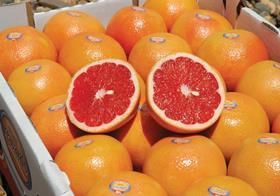
Australian exporters have welcomed the ratification of the Japan-Australia Economic Partnership Agreement (JAEPA), which will take effect today (15 January).
The bilateral free tree agreement will lower import tariffs on a wide range of Australian horticultural products immediately, with a secondary round of reductions to take place on 1 April. On full implementation, JAEPA will provide 97 per cent of Australian exports with customs duty-free or preferential tariff access to the Japanese market.
David Minnis, chairman of the Australian Horticultural Exporters Association (AHEA), said the move would allow Australian suppliers to take advantage of the strong potential in the Japanese market.
“The AHEA and industry alike are delighted that the JAEPA has been ratified,” Minnis explained. “Australia and Japan have a long trading history. Australian horticultural produce are already known for high quality, safety and counter seasonal fruit and vegetables. Australia’s proximity and taste offer a strong point of difference. Whilst technical market access issues still remain, the AHEA commends both governments in bringing together this timely reduction in tariffs.”
The JAEPA is being viewed as a significant win for Australia’s citrus industry, which already has a strong foothold in the Japanese market. A 16 per cent tariff on oranges during the peak of Australia’s season (June to September) will be eliminated over 10 years, while a 17 per cent duty on mandarins will be reduced to zero over 15 years. The current 10 per cent tariff on Australian grapefruit will be eliminated over five years.
Australia’s table grape industry will also benefit significantly from tariff reductions. Despite being one of Australia’s largest export sectors, grape exporters were reluctant to enter the Japanese market last season, after winning market access in early February. A prohibitive 17 per cent duty on off-season imports and 7.8 per cent tariff on in-season varieties were cited as the main reason by many exporters. However, with both tariffs set to be scrapped over the next 10 years, exporters are already fielding demand from Japanese importers and retailers, on the back of successful trial programmes run at the tail end of last season.



